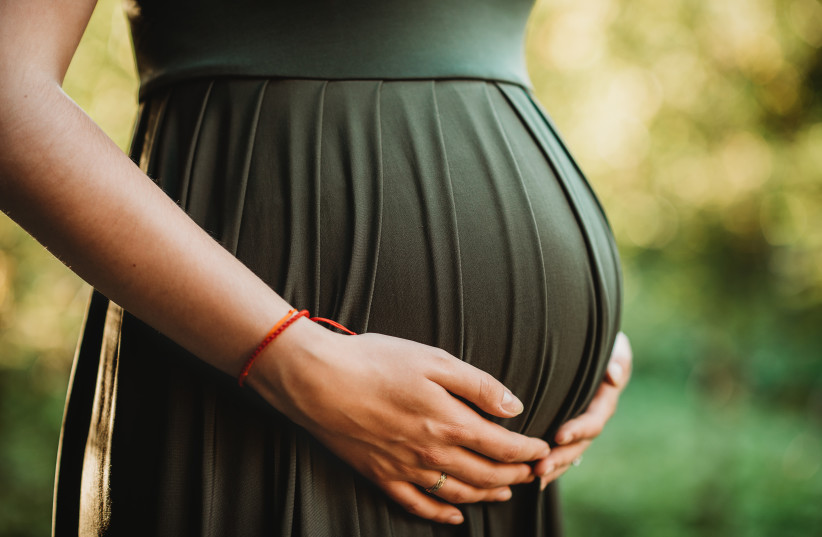Prenatal alcohol consumption can change your baby's face shape - study

Changes in face shape were seen even in cases where the amount of alcohol consumed was less than a small glass of wine or a bottle of beer.
It is common knowledge that people should not consume alcohol during pregnancy as it is likely to negatively impact the health of the unborn child, but a new Dutch study examines this phenomenon in even finer detail.
It is the first study of its kind to identify a connection between specific facial features in children and the amount of alcohol consumed by their mothers both before and during pregnancy.
Changes in face shape were seen even in cases where the amount of alcohol consumed was less than a small glass of wine or a bottle of beer a week.
The study, published in the peer-reviewed journal Human Reproduction, explains that the way a child's facial features are shaped is a possible indicator of how they are developing. This was already an established phenomenon in the case of fetal alcohol syndrome; heavy drinking during pregnancy leaves the child with very pronounced facial features. These can be small eyes, an exceptionally thin upper lip, a short, upturned nose, and a smooth skin surface between the nose and upper lip.
"The face reflects the overall health of the child," said one study author, Prof. Gennady Roshchupkin of the Netherlands' Erasmus Medical Group. "A child's exposure to alcohol before birth has significant negative effects on their health and development. If a[n expectant] mother drinks a lot on a regular basis, this is likely to cause fetal alcohol spectrum disorder which, among other things, can be seen on the [facial features] of the child."
The use of artificial intelligence to recognize patterns
In order to dig deeper into the issue, researchers used artificial intelligence (AI) and deep learning technology in order to discern patterns among the face shapes of children and the alcohol their mothers drank - both during and before pregnancy. They used 3-dimensional scans of thousands of 9-year-old and 13-year-old participants from a longitudinal study in the Netherlands.
"We found a statistically significant connection between prenatal exposure to alcohol and the shape of 9-year-old children's faces," said one of the study authors Xianjing Liu of the University of Rotterdam. Liu developed the AI algorithm used to distinguish patterns in facial features. "The more alcohol the mother drank, the more pronounced the facial changes would be. The most common features were a turned-up nose, a short nose, a sharp chin and inwardly-turned lower eyelids."
"Within the group of mothers who drank during pregnancy, we found that even if they drank very little - less than 12 grams per week - the [effects of fetal alcohol syndrome] could be seen [on the children's faces]," continued Liu. " This is the first time that a relationship like this could be demonstrated at such low levels of alcohol consumption."
Does age matter?
The link between face shape and prenatal alcohol consumption weakened in older children, but researchers pointed out that that does not mean they were not affected in other ways. In cases of diagnosed fetal alcohol syndrome, children can develop neurological issues, abnormal facial development and memory problems.
As such, researchers point out that this raises questions about health conditions associated with children whose mothers drank alcohol even in small amounts before conception, even if they stopped during pregnancy.
"The results of the study indicate that even low-to-moderate alcohol consumption up to three months before pregnancy can have an impact on the child's facial features," concluded the study authors. "Moreover, our research indicates that women who are pregnant or want to become pregnant should stop consuming alcohol several months before conception and continue to abstain from it completely during pregnancy in order to avoid any negative health outcomes in their children."
Jerusalem Post Store
`; document.getElementById("linkPremium").innerHTML = cont; var divWithLink = document.getElementById("premium-link"); if (divWithLink !== null && divWithLink !== 'undefined') { divWithLink.style.border = "solid 1px #cb0f3e"; divWithLink.style.textAlign = "center"; divWithLink.style.marginBottom = "15px"; divWithLink.style.marginTop = "15px"; divWithLink.style.width = "100%"; divWithLink.style.backgroundColor = "#122952"; divWithLink.style.color = "#ffffff"; divWithLink.style.lineHeight = "1.5"; } } (function (v, i) { });

